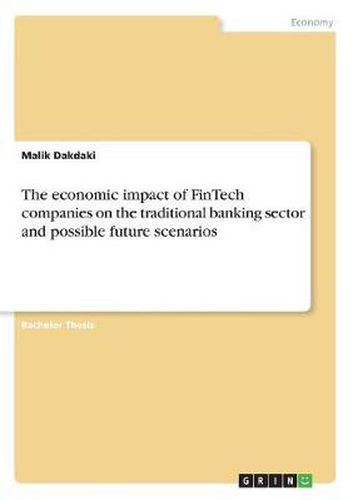Readings Newsletter
Become a Readings Member to make your shopping experience even easier.
Sign in or sign up for free!
You’re not far away from qualifying for FREE standard shipping within Australia
You’ve qualified for FREE standard shipping within Australia
The cart is loading…






Bachelor Thesis from the year 2017 in the subject Business economics - Accounting and Taxes, grade: 1,3, University of applied sciences Frankfurt a. M. (FOM), language: English, abstract: The beginning of the digital revolution at the turn of the millennium has ushered in a structural change in many sectors. Due to the increased use of modern information and communication technologies (ICT), several sectors have already experienced existential economic implications. This is especially evident in the music, media and publishing industries. For example, music is not only purchased on CDs from local retail stores, but is also increasingly consumed via the Internet through streaming services such as Spotify. Videos store rentals compete with the comfortable video-on-demand services available in customers’ own homes. The Internet as a medium for information and consumption for products and services has established itself as a faster, more comfortable and more efficient channel in comparison to traditional sales channels. Stationary retail stores were also not spared from digital disruption. The market research institute Gesellschaft fur Konsumforschung (GfK) predicts a doubling of the online share of retail sales from currently to 20% by the year 2025. At the same time, new and innovative market participants known as financial technology or FinTech companies are edging into the financial sector and trying to gain market share from established banks through customer-friendly products and services. Nevertheless, the banks do not seem to recognize the seriousness of the situation and therefore are reluctant to adapt to the new situation. However, experience has shown that ignorance of an industry’s digitization has already led to the fall of large and established companies. As a well-known example in the technology industry, Kodak is often referred to in this context. The company’s reaction to the digital disruption took place too late, whereas other companies had alr
$9.00 standard shipping within Australia
FREE standard shipping within Australia for orders over $100.00
Express & International shipping calculated at checkout
Bachelor Thesis from the year 2017 in the subject Business economics - Accounting and Taxes, grade: 1,3, University of applied sciences Frankfurt a. M. (FOM), language: English, abstract: The beginning of the digital revolution at the turn of the millennium has ushered in a structural change in many sectors. Due to the increased use of modern information and communication technologies (ICT), several sectors have already experienced existential economic implications. This is especially evident in the music, media and publishing industries. For example, music is not only purchased on CDs from local retail stores, but is also increasingly consumed via the Internet through streaming services such as Spotify. Videos store rentals compete with the comfortable video-on-demand services available in customers’ own homes. The Internet as a medium for information and consumption for products and services has established itself as a faster, more comfortable and more efficient channel in comparison to traditional sales channels. Stationary retail stores were also not spared from digital disruption. The market research institute Gesellschaft fur Konsumforschung (GfK) predicts a doubling of the online share of retail sales from currently to 20% by the year 2025. At the same time, new and innovative market participants known as financial technology or FinTech companies are edging into the financial sector and trying to gain market share from established banks through customer-friendly products and services. Nevertheless, the banks do not seem to recognize the seriousness of the situation and therefore are reluctant to adapt to the new situation. However, experience has shown that ignorance of an industry’s digitization has already led to the fall of large and established companies. As a well-known example in the technology industry, Kodak is often referred to in this context. The company’s reaction to the digital disruption took place too late, whereas other companies had alr